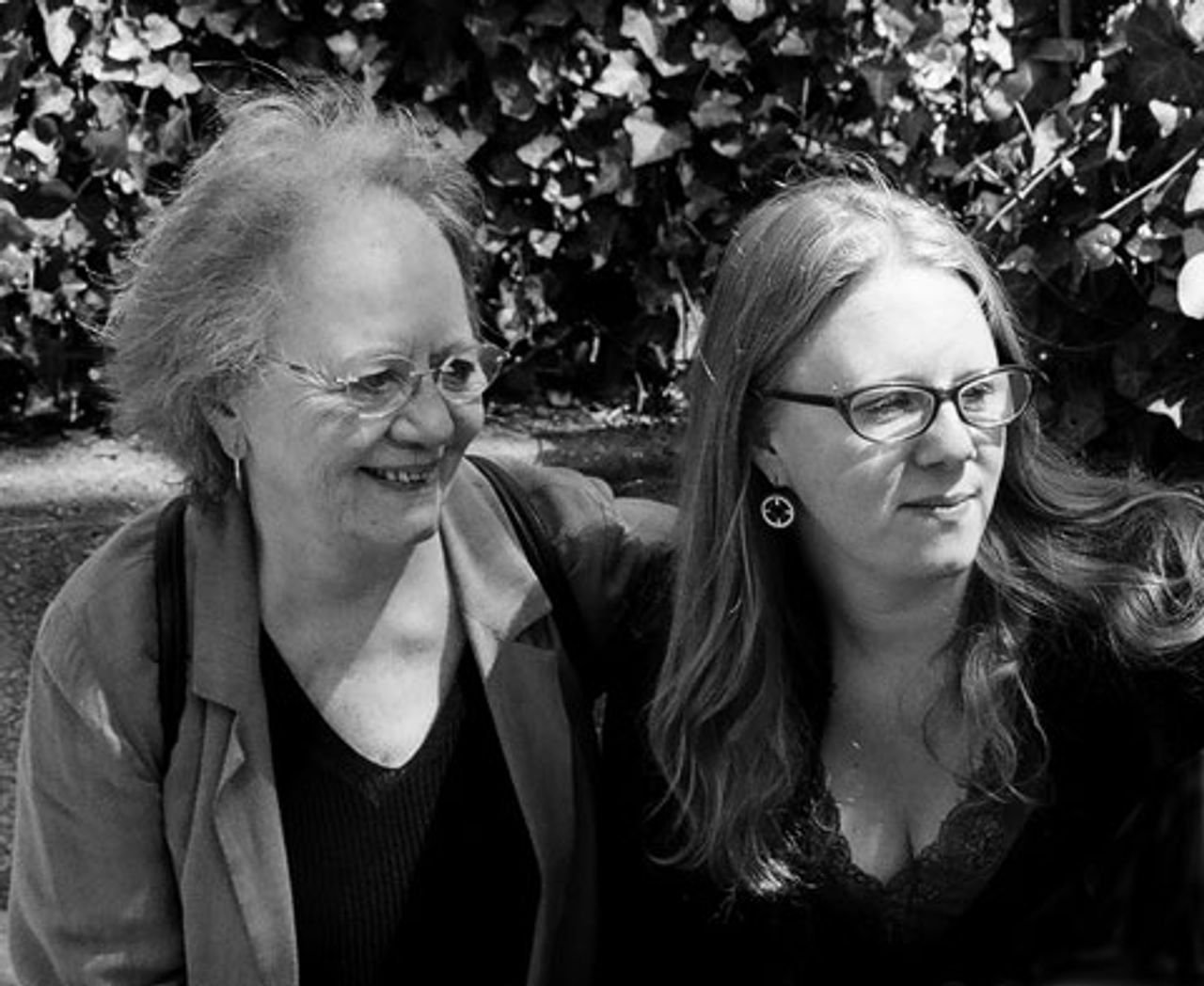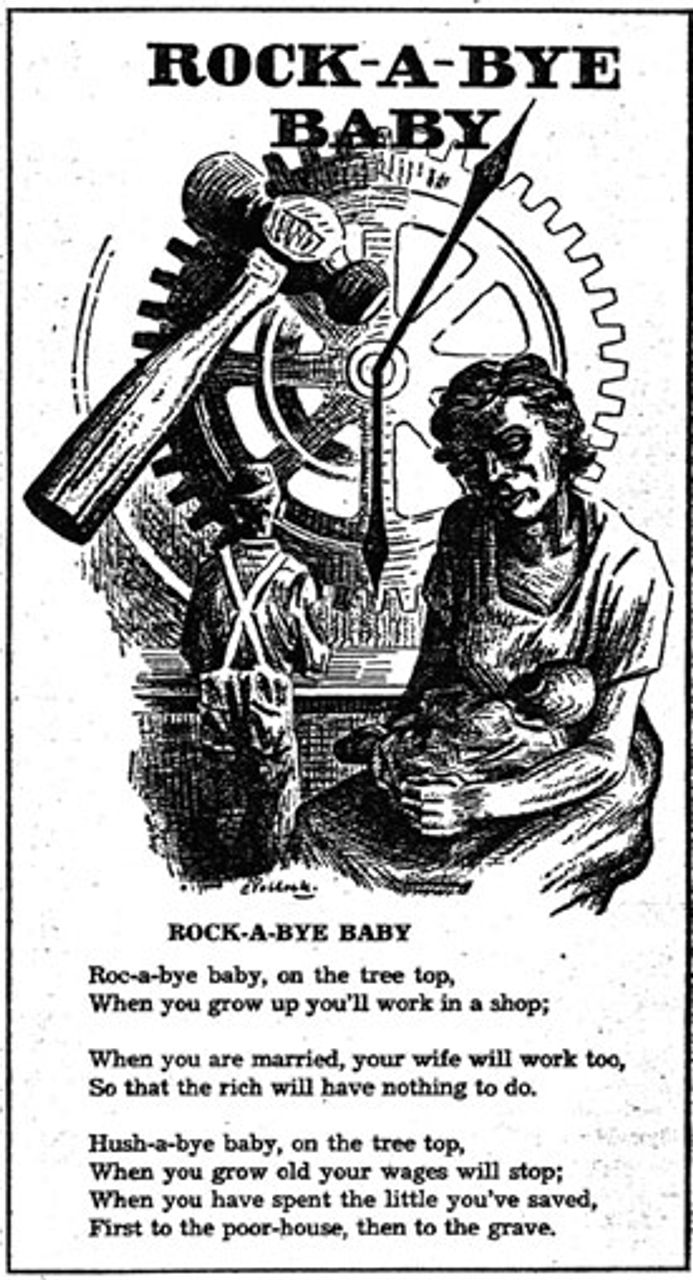Sylvia Winter Pollock, widow of Charles Pollock and co-editor of American Letters 1927-1947: Jackson Pollock & Family [see accompanying review], was kind enough to respond to a number of written questions submitted by WSWS arts editor David Walsh.
* * * * *
David Walsh: Could you give me a little elementary biographical information about yourself?
Sylvia Winter Pollock: I was born in London in 1935, went to the US with my parents in 1938. My paternal family included a rather well-known aunt: Ella Winter (you will know who she was). She was first married to Lincoln Steffens and then to Donald Ogden Stewart [the playwright, Hollywood screenwriter and victim of the anticommunist witchhunts]. Uncle Don was the master of ceremonies for a fund-raising dinner for the Hollywood Ten, and I was there. I am a graphic designer (Yale MFA) and poet.
 Sylvia Winter Pollock and Francesca Pollock © Charles Pollock Archives
Sylvia Winter Pollock and Francesca Pollock © Charles Pollock ArchivesOur daughter Francesca [co-editor of the Pollock family letters] was born in Michigan in 1967. She has been raised in France (and in French schools) since we came to Paris in 1971. She is a psychoanalyst and psychologist. She is also a translator (English to French). She translates books about cinema. She is now translating Robert Altman’s oral biography. Last year she translated Elia Kazan’s notes on directing.
DW: Could you tell me a little more about your husband’s later years?
SWP: We lived in New York when Charles retired from teaching, he had a painting studio, and I worked as a graphic designer. In 1970 I was offered a position as art director of a French publishing house in Paris and we came to explore that possibility. We came for a year and we stayed. I have to say that we had come to be totally and utterly disgusted by American politics, the Vietnam war, etc., so there was no regret there.
In Paris, Charles had a painting studio and he worked there every day. We did a bit of travelling, but our life was mostly work, child-rearing and enjoying the European life style.
DW: Did he ever express himself on American politics, past or present, in particular the McCarthyite years and the Cold War anticommunism? How did his own views change, generally speaking?
SWP: Charles considered himself a Fabian Socialist. He read The New Statesman. He was very critical of what he called the “meretricious” values in the States. If you read the letters, you will see that he initially believed art could play a role for social change in the government, but that proved impossible because of the extensive bureaucracy.
 United Auto Workers cartoon (Charles Pollock),
United Auto Workers cartoon (Charles Pollock),1937 © Charles Pollock Archives
Then he felt that perhaps the unions [the UAW in particular] would offer such an opportunity, but that proved a disappointment as well. As he said, the unions were only interested in “parliamentary law, labor economics and bowling.” Still, you can see his opinions in the political cartoons reproduced in the book. One would have to add that Elizabeth, Charles’s first wife was much more radical—and more active, politically—than he was. Here is a quote from an interview with her, it will give you a more precise idea:
“My years of pressure upon Charles to become ever more involved in the then-seething labor movement led to his becoming in 1937 the cartoonist and layout editor of the first weekly newspaper for the United Automobile Workers in Detroit. I recall that year, while pregnant, conducting night classes for union members in elementary aspects of journalism. My former favorite student at the Brookwood Labor School, Sophie, and her husband Victor Reuther were among our closest friends in Detroit. Roy Reuther, by the way, and I had conducted by bus a group of the Brookwood students through the New England states during the Depression producing agitation plays before hundreds of unemployed coal miners.”
Charles may have become less radical in his later years, and of course in abandoning Social Realism (around 1945), he also abandoned the idea that art could be instrumental for promoting social awareness. But he never gave up his socialist ideals and therefore he immensely enjoyed living in France, where there is some evidence of those ideals regardless of the politics of the moment: universal health care, free schools and universities, etc.
DW: Marvin and perhaps Frank were either members or sympathizers of the Communist Party. Do you know how long that association lasted?
SWP: I do not. I knew all the brothers except Jackson—but then I only came into the family in 1957, so I know nothing first-hand about their politics in early years. I have no evidence that would show that either of them were members of the Communist Party, whatever their sympathies. When I knew them they certainly had no connection with communism; I believe they expressed much the same views as Charles.
